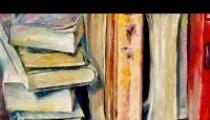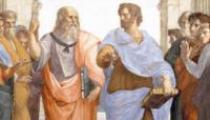With the popularity of the movie The Lord of the Rings comes renewed interest in its author JRR Tolkien. This book is a collection of essays exploring various aspects of Tolkien's writing and in particular its ability to hone in on that battle between good and evil that goes on inside each human being and even makes some of us saints: 'I expect they had lots of chances, like us, of turning back, only they didn't. And if they had we shouldn't know because they would have been forgotten' says one of the characters about the protagonists of The Lord of the Rings.
Such interest is timely, or should one say overdue, given the overwhelming rejection by the main stream culture of the notion of romance, heroism or anything noble in us for that matter: realism equals all that's bad in human nature. But Tolkien's romance, as the opening essay contends, is not a fantasy which seeks to escape from reality. It is one that seeks rather 'to liberate us by showing us the deeper patterns and meanings that lie concealed within it.' It attempts to capture aspects and dimensions of truth not easily expressible in ordinary language and as a genre is closer to someone like George Orwell or Evelyn Waugh.
Tolkien uses fantasy to explore profound moral and spiritual themes, many of these in the Lord of the Rings inspired by his observations of the English soldier's heroism in the World Wars.
The variety of essays in the collection is itself testimony to the imaginative breadth of the subject: his use of Catholic imagery in the novels; his description of what makes a hero; his poetry; the intricate working of the symbolism of light and darkness in the Lord of the Rings; how his work can be adapted for film (which is one of the most interesting sections of the book); his insights about the nature of evil; his courageous confrontation of the realities around him and his ability to see beyond the despair.
Tolkien comes to us in film at a time when hope is a scarce commodity: far deeper in meaning than Harry Potter, but perhaps it was Harry that prepared the general populace for the reception of The Lord of the Rings.
With great relief I'm sure, people can today look at life through the imagination of this man and see that it is indeed thus, full of hope and truth, when the people haven't lost their nerve.
A Hidden Presence: the Catholic Imagination of J.R.R.Tolkien
by Ian Boyd, C.S.B. & Stratford Caldecott (eds.)
The Chesterton Press, 2003




